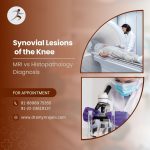What Is Septic Arthritis?
Septic arthritis is an infection that affects the joints of the body. Patients with septic arthritis will complain of pain, swelling, and difficulty in moving the affected joint. The skin overlying the affected joint is often warm to touch and may have developed a slight reddish discoloration.
Septic arthritis requires immediate medical or surgical intervention under the supervision of a knee specialist in Breach Candy Hospital Mumbai.
What Causes Septic Arthritis Of The Knee Joint?
The development of septic arthritis could be due to localized infection of the knee joint or the spread of infection from another source of infection elsewhere in the body. While the source of infection is bacteria or virus in most cases, the trigger factors for the development of the infection must be short-listed.
- Knee Joint Injury
The knee joint may sustain a perforating injury due to sharp objects, or a blunt injury due to direct trauma with a heavy object (such as during car accidents). Poor management of the injury may lead to the development of infection within the knee joint, leading to septic arthritis.
- Recent Knee Joint Surgery
Patients with a recent history of arthroscopic knee surgery in Mumbai may often develop septic arthritis of the operated knee. This is likely to occur if poor hygiene and sterilization are observed during the surgery.
- Weak Immune System
Patients with a weakened immune system, diabetics, patients who have a history of autoimmune disorders are easy targets to develop septic arthritis.
- Endocarditis
Patients who have a history of endocarditis (infection of the cardiac tissue), may develop septic arthritis due to the spread of infection from the heart.
An orthopedic surgeon in Mumbai can get to the root cause of septic arthritis after taking the patient’s case history and a detailed physical examination of the patient.
Treating Septic Arthritis Of Knee Joint
Septic arthritis can be treated medically or surgically depending on the extent and nature of the disease.
- Medicinal Treatment
Patients who present with septic arthritis during its initial stage often respond well to a course of antibiotics. Pain relief medicines, anti-inflammatory agents, and sometimes steroids are prescribed to patients. The medication is often prescribed orally in the form of capsules and tablets. More severe cases may require injections.
- Surgery
Some cases of septic arthritis may not respond at all or recur even after treatment with medicines. Surgeons may decide to perform arthroscopy to remove the pus and other infectious debris to treat the underlying septic arthritis. Very severe cases of septic arthritis that are associated with widespread and permanent tissue damage, may prompt surgeons to consider knee joint replacement surgery as a mode of treatment.
Septic arthritis can be easily managed with medication or surgery if it is detected at an initial stage. Patients must remain aware of their health and consult with a surgeon promptly, if they experience recurrent knee joint complaints.



